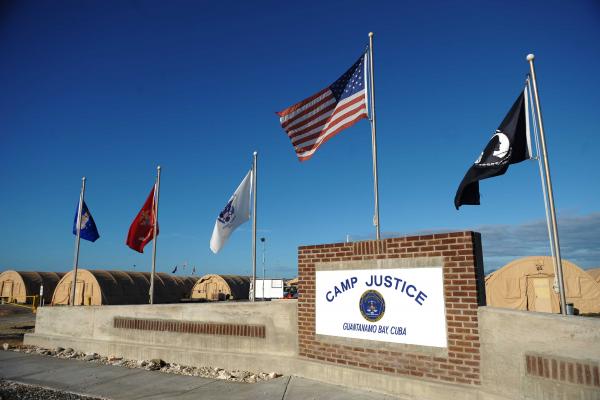The myth that President Barack Obama closed Guantanamo his first year in office persists, but four years later the detainees are still there. Can justice be served?
I wanted to find out for myself. Over the past month, the Obama administration has started prosecuting some of the Guantanamo prisoners. They are tried in a specially constructed courtroom at Guantanamo, under military commissions rules touted to restore the rights absent under former President George W. Bush’s tribunals.
The trial logistics are a challenge: the tribunals convene periodically on the Guantanamo naval base under tightly controlled conditions. Additionally, the hearings are simulcast to military bases in the U.S. where members of the public and press are allowed to view.
I went to the Ft. Meade army base in Maryland to view the proceedings via closed circuit TV. While I was there, Khalid Sheikh Mohammad, alleged ringleader in the September 11, 2001, attacks, and four other men charged with various crimes related to 9/11, were on trial. The government is asking for the death penalty for all five men.
Read the Full Article

